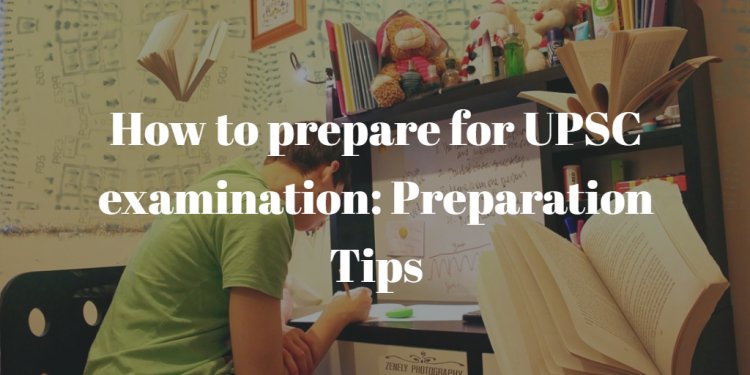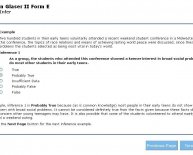
Job interview Exams
Why do you want to work for this company? Why are you interested in this job?
The interviewer is trying to determine what you know and like about the company, whether you will be willing to make a commitment to the job, and if your skills match the job requirements. Your research will be a big help in formulating your answer to this question. Say as many positive things about the company as possible, show your interest in whatever products/services they sell and explain why the position fits with your career goals.
Have you done this kind of work before?
The interviewer wants to know if you can learn to do the job in a reasonable time and how much training you will need. Never say "no" to this question. Instead, stress the experience you do have that will assist you in learning the new job quickly and efficiently. No two jobs are alike and you never do exactly the same work. In all jobs, new skills, rules and details have to be learned. Be sure to mention the following:
- Your past work experience.
- Your education and training related to the job.
- Volunteer work that might relate to the job.
- Any transferable skills - e.g. organizational skills, people skills.
- Your ability to learn quickly and how quickly you learned that type of work in the past.
What kind of training or qualifications do you have?
The interviewer is trying to find out what school credentials you have. If you have no formal school qualifications but have a lot of experience, you might say:
- I didn't get formal school training for this job but I have (number) of years of experience in the field. I'm willing to learn new skills or go to school to get further training if I am offered the job. I learn quickly and I like to keep upgrading my skills.
If you have just completed a training course but have little work experience, you mightsay:
- I took a one year training program in (name of program) at (name of school) which is related to the job I'm applying for. I look forward to working in the field and putting into practice what I learned. I don't have a lot of work experience in this area but I learn quickly. I know you will be happy with my work.
Tell me about yourself. Why should we hire you?
The interviewer is trying to find out about you, your job skills and how well you express yourself. Do not dwell on personal issues. State your best qualifications for the job. Be specific and include examples to support your statements. Try to show that you meet the employer's expectations. For example:
- I am punctual, dependable and can be counted upon to finish what I start. I get a great deal of satisfaction from knowing that I have done something well and on time. For example, at my present job, I was given different work orders every day. It was my responsibility to finish the orders and make sure they all met quality and safety standards within a specific deadline. On occasion, I had to familiarize myself with the product and the production process. I was always able to learn quickly and carry out my job responsibilities. Our company was known for making excellent processed food products. In 1990, it received an award for being on of Canada's top companies in the field. I feel I can use the same skills and hard work to do well on this job too.
What do you do in your spare time?
Interviewers ask this question to see if your activities and hobbies might help the company and to get an idea of what kind of person you are outside your work life. Describe any volunteer work you do and any hobbies or interests that might relate to the job in some way. Stick to active hobbies, such as playing sports, carpentry, gardening, etc. Avoid mentioning inactive and non-creative activities such as watching television.
What do you think of working in a group?
The interviewer is trying to find out about your ability to get along with others.Focus on the following:
- The advantages of working in a group. Explain how the various individuals in a group complement one another in carrying out certain tasks.
- Give specific examples of your personal experience in a group
How do you react to instruction and criticism?
The interviewer is trying to find out how you get along with Supervisors and how you feel about authority. You might say:
- I appreciate getting instruction and criticism when it is done fairly and constructively.
With the kind of work experience you have had, do you think this job would bore you?
The interviewer may think you are over-qualified and want this job only until something better comes along. Stress that no job is ever boring because you always learn new skills. Mention how you would benefit by working for the company and vice versa.
Why did you choose this line of work?
The interviewer is trying to find out about your commitment to your career choice. In other words do you do it because you love the work or just take any job you can get for the money. If you did this work for many years and stopped due to a layoff, you might say:
- I have done this for (number) of years. I like my work. The only reason I left my last workplace was because I was laid off.
How well do you work under pressure or tight deadlines?
This question indicates that the job you're applying for will involve working under pressure. Give examples of volunteer and paid work that involved pressure and deadlines. You could mention that we are always faced with pressure and deadlines in our lives and you do not mind the stress. Stressful situations are a learning and challenging experience. You might mention the following:
- How you handled large rush orders at your last workplace.
- How you prepared for exams and homework assignments while working full-time and attending school part-time.
- How you managed a crisis situation. (For example: a car accident)
How often were you absent from work in your last job? Have you every had any serious illness or injuries? Do you have any health problems?
The interviewer is trying to find out if you have any health issues which will cause you to take a lot of sick days. You do not have to go into your health history for the interviewer. If you have health problems that do not interfere with your work performance, do not give the interviewer details about them. If you had a previous health problem that interfered with your work in the past, but is no longer a problem, do not volunteer this information. It no longer affects your work, therefore the employer does not have to know.

















